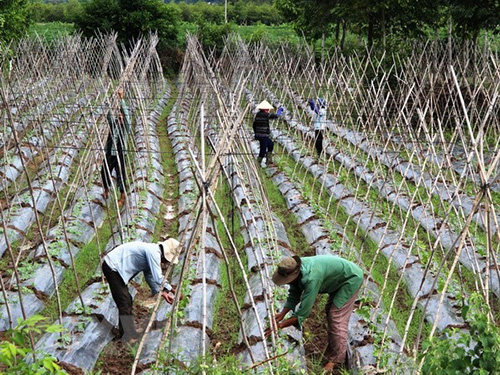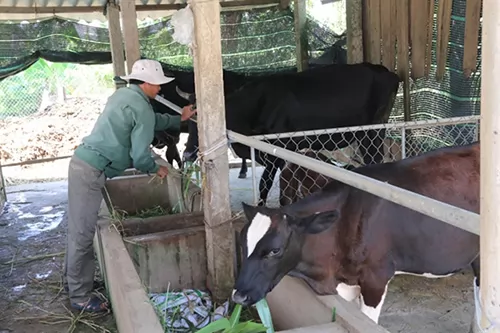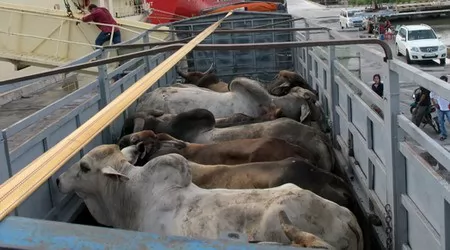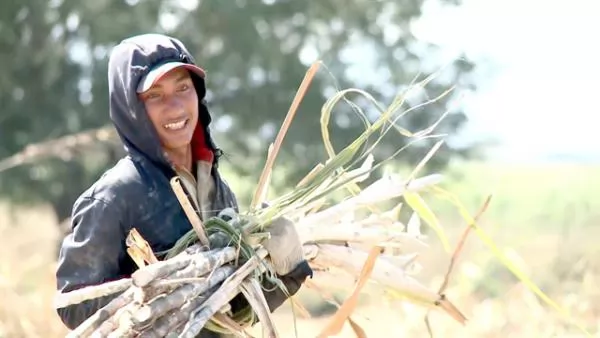International assistance to enhance Việt food safety

A vegetable farm which is VietGap certified. Photo for illustration. – VNA/VNS Photo Lê Đức Hoảnh
Viet Nam News | HÀ NỘI – About 1,000 small-hold farmers will take capacity enhancing training on food safety offered by the International Finance Corporation (IFC) in the next three years.
The IFC in partnership with New Zealand’s Foreign Affairs and Trade Aid Programme will assist from 10 to 20 farms to acquire GLOBAL GAP certification, an internationally recognised set of farming standards dedicated to Good Agricultural Practices (GAP) or equivalent standards.
Farmers who take part in the training may also be introduced with potential retailers and firms seeking certified agricultural products.
Annual food consumption in the domestic market contributes about 15 per cent to the gross domestic product with the average annual growth of about 18 per cent. However, inadequate safety standards can limit the sector’s growth potential, threaten consumers’ health and stop local farmers from accessing new markets. Meanwhile, not all Vietnamese people can buy food in supermarkets or certified stores.
“Looking at food safety in Việt Nam, the role of small-hold farmers is important,” said Nguyễn Việt Hùng from the World Bank Food Safety Working Group.
According to Katsuki Kishi, General Manager of Group Quality Management Department under AEON Retail Company, food safety for farmers is critical to establish a strong supply chain. He said while many agricultural product providers are small-hold farmers, it was still a huge challenge for them to have their products internationally certified.
Therefore, from the perspective of a retailer, small-hold farmers should be provided support to satisfy international farm standards.
Speaking at the event, Wendy Mathews, New Zealand Ambassador to Việt Nam, stressed the significance of this co-operative effort in improving competitiveness, bargaining power and profits for local farmers.
“Improving food safety standards in order to access new markets is key to achieving Việt Nam’s US$40 billion agricultural product export target in 2018 and beyond,” she said.
“Promoting better agribusiness practices and food safety standards will benefit Việt Nam’s farmers, businesses and consumers,” she added.
The project is a component of IFC’s broader Việt Nam Food Safety Program launched in July 2017 in co-operation with the Slovak Republic, focusing on embracing food safety standards and practices.
“Implementing international accepted food safety practice and systems is essential for the sustainable growth of Vietnam’s agribusiness sector. This will improve competitiveness and help increase sales for farmers and food producers,” said Kyle Kelhofer, IFC Country Manager for Việt Nam, Cambodia and Laos.
“Our work in Việt Nam builds on our experience in other countries around the world where we helped local players grow and create new and better opportunities,” she added. — VNS
Maybe you are interested

Mekong Delta develops beef, dairy farming
HCM CITY — Many provinces in the Cửu Long (Mekong) Delta have developed dairy and beef farming since it provides farmers with an additional income and benefits from local agricultural by-products.

Vietnam beef imports soar, but cow breeding remains unprofitable
Importof cows for beef has surged since demand is high and industry insiders say the lack ofgrasslands in Vietnam means there is not promise much profit for local livestock farmers.

Life gets sweeter for farmers on rocky land
GIA LAI — Hbông Commune is located in a rocky area, and after many years of struggling to find crops that could be adapted to the arid land, local farmers decided on sugarcane.





